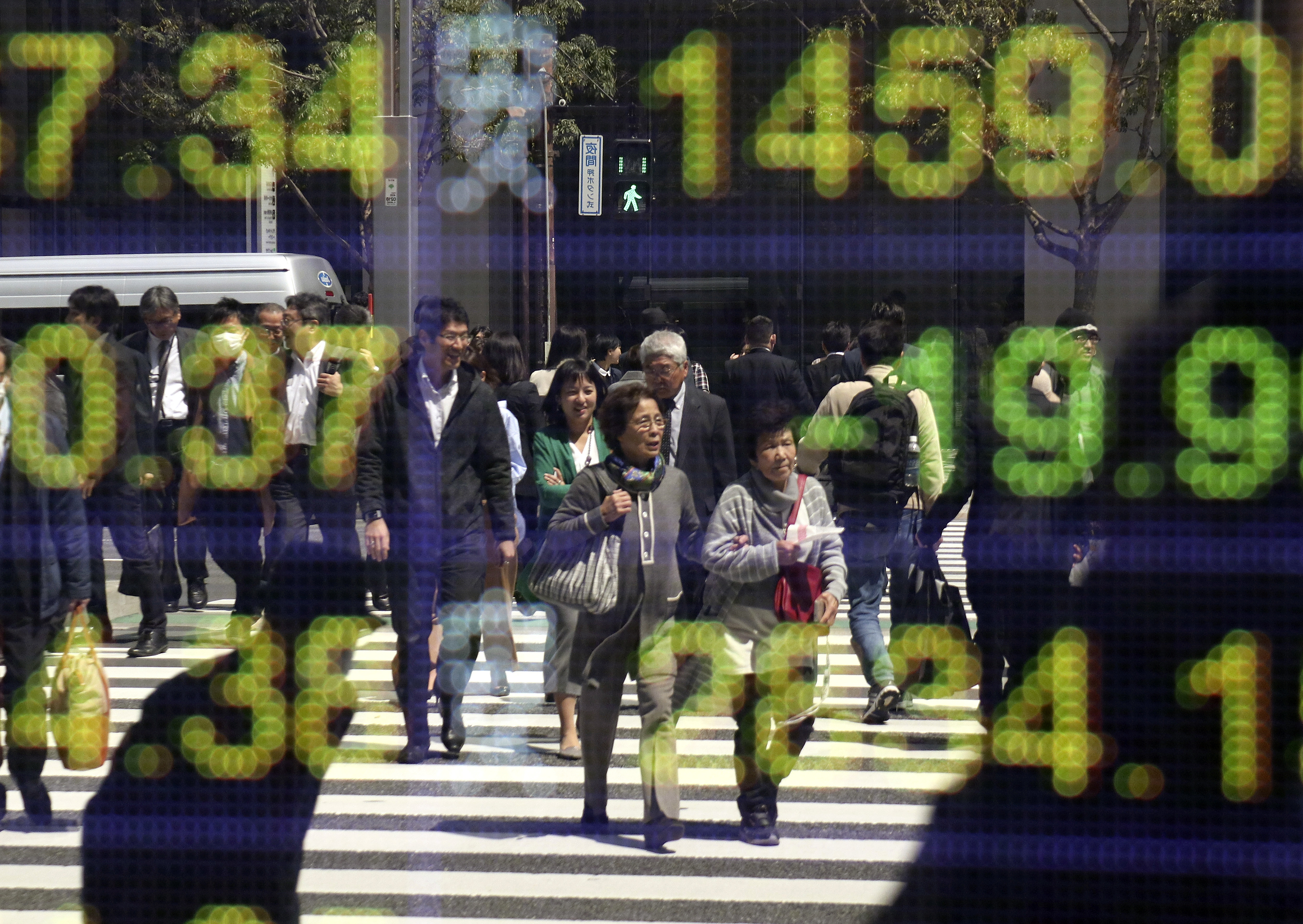
People are reflected on an electronic stock indicator of a securities firm in Tokyo, Thursday, April 13, 2017. Asian stock markets were mostly lower Thursday after Wall Street fell for a second day and U.S. President Donald Trump withdrew a threat to declare China a currency manipulator. (AP Photo/Shizuo Kambayashi)
Asian markets were mostly weaker Thursday, as the dollar retreated following comments by US President Donald Trump expressing concern about a strong greenback.
Geopolitical tensions also continued to weigh on investor sentiment, as ties between the US and Russia turn increasingly frosty over Moscow’s backing for Syrian President Bashar al-Assad.
But Trump’s praise for Chinese President Xi Jinping Wednesday raised hopes of easing friction between the two superpowers over dealing with North Korea’s nuclear program.
The dollar slid after Trump told The Wall Street Journal that he was worried about its strength and said he favored low interest rates.
“I think our dollar is getting too strong, and partially that’s my fault because people have confidence in me. But that’s hurting — that will hurt ultimately,” Trump told the paper.
Trump also reversed course on an earlier vow to label Beijing a currency manipulator, that had sparked fears of a potential trade war between the world’s two largest economies.
China for years was accused of keeping its currency artificially low to make its exports cheaper and more competitive compared to US goods.
“They’re not currency manipulators,” Trump said flatly in the interview.
He went out of his way to praise Xi, saying he was “very impressed” following a meeting between the two leaders in Florida last week.
“I think we had a very good chemistry together. I think he wants to help us with North Korea,” Trump said in a Wednesday press conference.
Greg McKenna, chief market strategist at CFD and FX provider, AxiTrader, said, “What’s important here, and worth noting for investors and traders, is that President Trump has shown a willingness to change previously strongly held and articulated positions when he has been convinced – or informed – of the reality.”
The yen jumped against the greenback following Trump’s interview, trading at 108.83 in Asia, down from 109.07 in New York.
Tokyo ended the morning 1.1 percent lower while Hong Kong lost 0.2 percent. Sydney and Singapore also registered losses.
Shanghai edged up marginally as did Seoul, adding less than 0.1 percent.
The stronger yen hit exporters with Toyota falling 1.81 percent while smaller rival Mitsubishi Motors lost 2.29 percent in morning deals.
Toshiba fell 1.98 percent as speculation swirls over its plan to sell a prized memory chip unit to plug huge losses.
Tensions continued to mount between Washington and Moscow with Russia using its UN Security Council veto on Wednesday to swat down a US-backed resolution demanding Syrian cooperation in probing last week’s suspected chemical attack.
“The meeting between Russia and the US Secretary of State overnight couldn’t really be characterised as having released tensions… the body language is awful and Russian president Putin said that trust between the two nations had diminished,” McKenna said.
Oil markets pared back gains which had followed a US missile strike in Syria on Friday that had raised speculation about the impact on exports from the crude-rich Middle East.